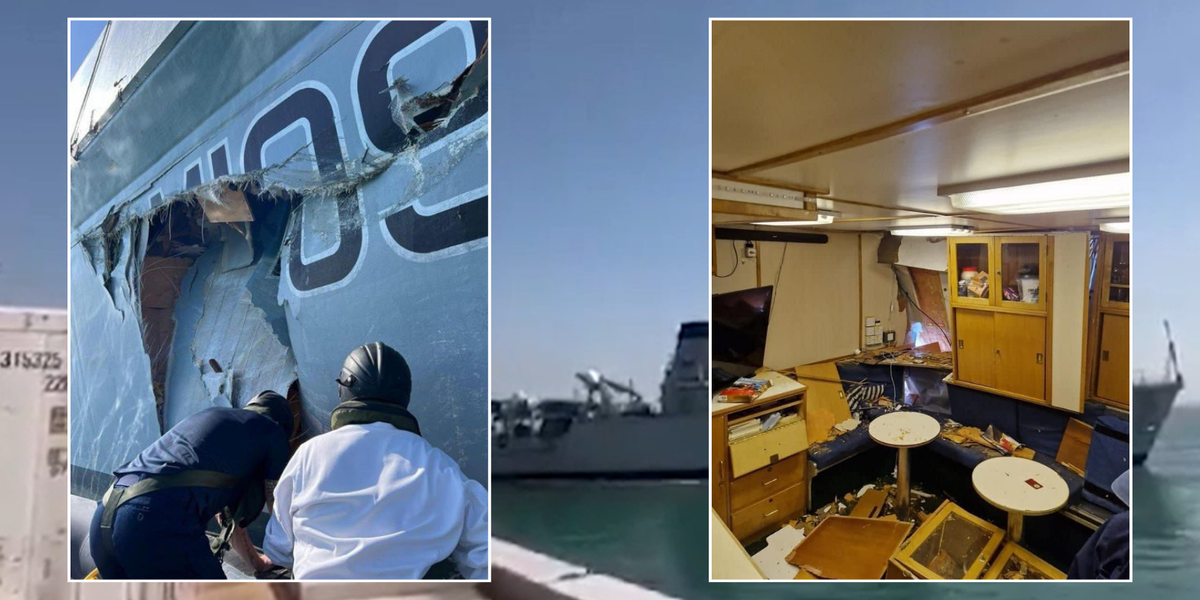Two Navy warships which crashed into each other did so because one had its engines wired to reverse rather than go forward, sources have claimed.
HMS Chiddingfold had attempted to moor alongside HMS Bangor in Bahrain, but chuntered into the ship’s port side instead, leaving the vessel with a gaping hole in its hull.
The ship reversed because engine controls had been wired incorrectly, leaving it “producing astern instead of ahead”, both the Telegraph and Guardian said.
Smoke could be seen from Chiddingfold’s funnel moments before impact, suggesting its crew had attempted a last-minute acceleration ahead – but the “rewired” engines propelled the ship even faster in the wrong direction.
A social media user asked “why is that ship’s hull made of paper mâché?”
Twitter/MilitaryBanter
Images posted by sailors showed a significant breach in Bangor’s hull – made of fibreglass to minimise the risk of tripping magnetic mines – and possible internal structural damage in the junior rates’ mess and sleeping quarters.
The Royal Navy has already launched an investigation into the mishap, and Defence Secretary Grant Shapps has come out to defend the incident.
On Sunday, Shapps said: “We don’t say it’s incompetence when we see an aircraft come down.
“A very rare occasion just as this would be a rare occasion… It’s right to leave the investigators some time to work out exactly what’s gone wrong.”
LATEST DEVELOPMENTS:
The clip and subsequent images of the damage garnered ridicule on social media
Twitter/MilitaryBanter/Facebook/Military Frenzy
The clip and subsequent images of the damage garnered ridicule on social media – one user joked the ship “can’t park there”, while another asked “why is that ship’s hull made of paper mâché?”
Another poster chimed in, and said: “To be fair, it’s a pretty tight turning circle, only had the gap between the other ship and hundreds of miles of open water” before joking that sailors involved in the incident may be “entitled to compensation” for hearing loss.
The collision – or, technically, allision, where only one of the vessels is moving – has ruled at least one of the three British minehunters out of action.
The ships are in Bahrain under Operation Kipion, the air and sea presence of British forces in the Gulf and Indian Ocean to promote peace and stability in the region.
Operation Kipion is responsible for naval operations in the Strait of Hormuz, Suez Canal and counter-piracy in the Indian Ocean, and helps to safeguard international trade in the area.
Similar safeguarding has taken place under the Operation Prosperity Guardian, including fresh UK-US strikes on Houthi targets just this morning.
Shockingly, this isn’t the first time HMS Chiddingfold has struck another navy ship.
In April 2021, in the same facility at Mina Salman in Bahrain, the vessel struck HMS Penzance – though this was thought to have been caused by a sudden gust of wind.

